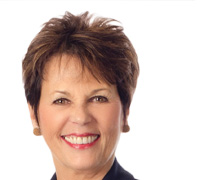In 1972, my bank refused to loan me money for law school because I would “get married, have children, and never practice law.” This would not happen in the United States today, since nearly half of law students are now women. But in the world’s developing countries up to 40 percent of children are not even enrolled in primary schools, and although almost half of primary students are girls, only 20 percent of high school students and 8 percent of higher education students are.
Yet educated girls in developing countries marry later and have smaller, healthier families; they pass on the value of education to their children; they have greater economic opportunities; and they participate in the political process, thereby helping eliminate discrimination and resolve conflict.
As a lawyer, I spend every day advancing the cause of justice. I’m also a pragmatist. That’s why educating girls in developing countries is a no-brainer for me—it is both just and practical. Nicholas Kristof and Sheryl WuDunn’s Half the Sky suggests things we can do. Here are my favorites:
Advocate- Join the grassroots campaign. Advocate through your church, professional and women’s organizations to convince our government to provide $10 billion over five years to educate girls around the world by funding new schools and finding the most cost-effective ways to support education (school uniforms for girls, school lunches, helping girls manage menstruation, etc.). Not an easy sell in today’s political and economic climate, but grassroots advocacy and action raise the underlying issues on the international agenda, and illustrate solutions to the problems.
Donate- Build a school with $13,000 (plus matching funds) or provide money to families of girls with perfect attendance for $10/month through American Assistance for Cambodia; send an orphaned Ugandan girl to boarding school for $275/year through the African Rural School Foundation USA, etc.
Volunteer- Create a giving circle or conduct fundraisers and personally deliver your donations to the developing country; teach English (and encourage your college-age children to) for a few months in a developing country. See also What Can One Person Do? by Sabina Alkire and Edmund Newell, and visit www.givingcircles.org.
Providing educational opportunities for girls in the developing world will change their lives and ours. Someday I’ll visit a young Cambodian woman I helped educate and listen as she describes her journey, and I’ll describe mine—my career as a lawyer, and yes, my husband and children.







